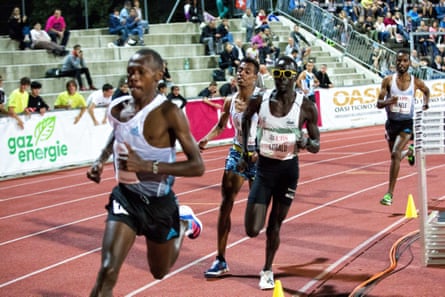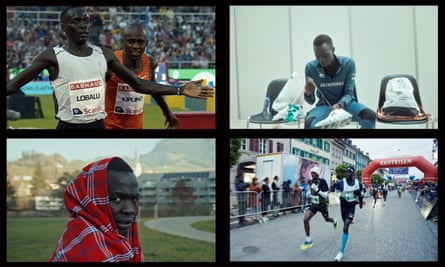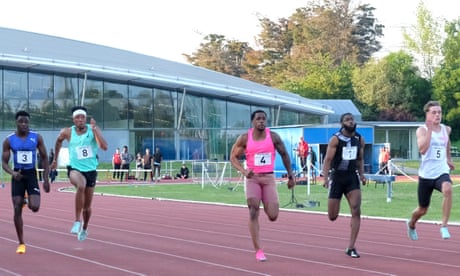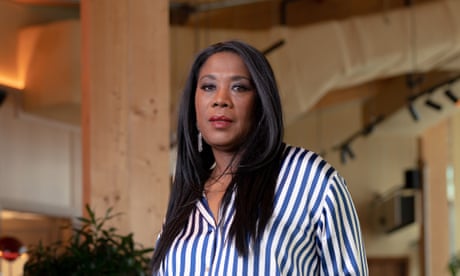Ron Morris asked us to post this message. Hoping to see those who can make it to Santa Barbara County Courthouse on Friday June 23, 2023 from Noon to 1:30PM

Beginning our 14th year and 1,200+ postings. A blog for athletes and fans of 20th century Track and Field culled from articles in sports journals of the day, original articles, book reviews, and commentaries from readers who lived and ran and coached in that era. We're equivalent to an Amer. Legion post of Track and Field but without cheap beer. You may contact us directly at irathermediate@gmail.com or write a comment below. George Brose, Courtenay, BC ed.
Once Upon a Time in the Vest
Monday, June 19, 2023
V 13 N. 64 Title IX Celebration in Southern California Invite
Sunday, June 18, 2023
V 13 N. 63 Dominic Lobalu , A Refugee Athlete's Life in the Fast Lane
June 18, 2023
I found this story incredible to read explaining how someone can come out of a terrible first part of their life and still show the grace and fortitude to succeed in some aspect of life. The pain in the late stages of a hotly contested race is probably minimalist compared to what he has gone through while growing up.
The other part of this article is mind boggling when it tries to explain what an international bureacracy can create to ignore or recognize a human being's right to exist and compete against one's equals.
If athletes from Russia can compete under the Olympic Flag, why can't Lobalu do the same? Bill Schnier
The following story appeared in The Guardian today but originated in The Observer written by Ben Bloom.
‘I’m born to suffer’: refugee athlete Dominic Lobalu on race to find a home
Saga of the stateless elite runner and the Swiss school teacher who saw his talent is the subject of a new documentary
The scene is the closing stages of last year’s Stockholm Diamond League 3,000 metres. Jacob Kiplimo, Uganda’s half marathon world record holder and an Olympic medalist, heads a quartet of runners approaching the final bend on his way to what is expected to be a routine win. Trailing him are Kenya’s Cornelius Kemboi and Stewart McSweyn of Australia. We know that because the commentator says so. The fourth of the leading pack is an unidentified man in a plain white singlet.
Entering the home straight, the man in white moves into second place. Grasping for his name, the commentator suggests it is an athlete from Burundi. He is wrong, but the man in white is accustomed to being invisible. Only when the man pulls alongside Kiplimo and passes him approaching the finish line does the commentator realise his error, correctly identifying a life-changing victory for Dominic Lobalu.
Where most athletes have their national flag next to their name, Lobalu has the letters ART, denoting the Athlete Refugee Team. But he does not represent them. Nor does he represent South Sudan, the country of his birth, or Switzerland, the country where he now lives. Lobalu is stateless; a refugee and asylum seeker with no official nationality.
At this moment, all that can be forgotten. For now, he is just a man running the race of his life, beating some of the sport’s biggest names and catapulting himself on to a stage of which he has only ever dreamed. “That is a transformation from being an also-ran on the international scene to being a superstar,” concludes the commentator.

The 24-year-old Lobalu is the first refugee athlete to turn professional, but his lack of national identity means he cannot compete at this summer’s world championships or next year’s Olympics. While the wheels of an asylum application grind painfully slowly, his destiny remains stubbornly out of reach, robbing him of the thing he desires most.
“I’m just telling myself I’m born to suffer,” he says, flashing a broad smile that contrasts alarmingly with the words coming out of his mouth in a new documentary film entitled The Right to Race, released for World Refugee Day on Tuesday 20 June . “Everywhere I go, I expect tough. So it comes, it is normal. But I’m having a good life.”
Born in the remote village of Chukudum in what would later become South Sudan, Lobalu was nine when he lost his parents in the brutal civil war that preceded independence from Sudan and fled over the nearby border to Kenya, where he became separated from his four sisters. Via an orphanage just north of Nairobi, he was offered a place at the nearby Tegla Loroupe Peace Foundation – an athletics training camp, which forms the basis of the Athlete Refugee Team.
He competed for them at the 2017 London world championships – “It was my first time on a plane, it was like I’m dreaming” – finishing only in front of a lone Dutch runner, who had tripped and fallen. Yet two years later, he took the snap decision to abscond after a race in Geneva, in part due to discontent at life in the athletics camp, in part in search of better things. He prefers not to dwell on it, saying: “I don’t want to talk about it. I don’t like to remind myself what I have passed through.”
Lobalu had no idea what lay in wait when he left the team hotel before dawn on a chilly May morning in 2019 with no money in his pocket and only the clothes on his back. “The situation I came from was hard,” he says. “So it’s better for me to try new things.”
Some months later, a Swiss secondary school teacher and part-time athletics coach, Markus Hagmann, received a call from an immigration officer informing him there was an asylum seeker who wanted to run. “Within the first 200m I could see something in him,” says Hagmann. “But his body and mind were marked from his journey – there was a lot of work to do to make him feel comfortable.” Lobalu says: “It took a lot for me to trust him because the life I had before I didn’t trust anybody. It took time.”

Together, they worked in St Gallen, where Lobalu was placed in an apartment along with two other asylum seekers, sowing the seeds for a spectacular 2022 breakthrough year that included victory in Stockholm on his Diamond League debut and a time quicker than the European record at the Copenhagen half marathon. But he does not yet count as European.
after newsletter promotion
Now he is no longer permitted to compete for the Athlete Refugee Team, World Athletics is sympathetic to his plight but the global governing body say it cannot allow him to race at major competitions as a neutral for fear of encouraging other refugees to follow his path.
“His story, some of it is frustrating, some of it is sad,” says the governing body’s spokesperson Jackie Brock-Doyle. “We’re not without a huge amount of empathy for him. But it’s important that there are processes that we have that he needs to fit within to get what he wants across the line.”
Waiting for Swiss citizenship is an impossibly long process, so the Swiss Athletics Federation has applied to World Athletics for a transfer of allegiance. Any timeframe is unknown, leaving Lobalu dreaming of a place at next year’s Olympics, where he would be a medal contender.
“It is very important because there are other people where I come from whose life is too hard,” he says. “Some will have that talent but because of where they come from they don’t believe it. I want to be an example to show them that whatever you want to do, put it in your heart and do it with your whole passion.”
And if the bureaucratic chips do not fall in his favour, he will simply continue running wherever he can: “I can breathe well, and I have freedom. I enjoy my life. I am happy.”
The Right to Race screens on Eurosport 1 on Tuesday, World Refugee Day, and is available to watch on www.RighttoRace.com
Wednesday, June 14, 2023
V 13 N. 62 Harvey Glance US Olympic Sprinter and Gold Medalist R.I.P.
Bill Schnier wrote this moving comment about Harvey Glance and his coach /mentor Mel Rosen at Auburn. This is followed by the USATF report about Mr. Glance's history. George
And a really nice memory from Geoff Pietsch in Florida:
I have a still vivid memory of Harvey Glance from the 1976 Olympic Trials. At midweek, at a quiet moment several minutes before the 200 meter heats began, I was sitting in Hayward Field's East Grandstand midway on the backstretch. Harvey Glance, in his sweats, walked by, heading towards the 200 meter start. The moderate crowd began to applaud. Glance looked around in obvious puzzlement, clearly wondering what was going on that they were applauding. And then the realization clearly hit him. These knowledgeable Hayward Field Track fans were applauding to honor him for winning the 100 meter Trials. He was an underdog in the 100. A very young sprinter, just emerging. But they knew who he was. And what he had accomplished. And clearly it touched him.
USATF MOURNS PASSING OF OLYMPIC GOLD MEDALIST HARVEY GLANCE
Olympic gold medalist and World Championships men's head coach Harvey Glance died June 12th after suffering a heart attack earlier in the week. He was 66.
Glance was one of the top sprinters of his era and twice tied the world record in the 100 meters with 9.9 clockings in 1976. He ran the leadoff leg on the U.S. 4x100m relay that won gold at the 1976 Olympic Games in Montreal, and 11 years later in Rome he ran the opening leg on the victorious Team USATF 4x100m relay squad at the World Championships.
A high school star at Phenix City (Alabama) Central, Glance won three events at the 1975 Alabama 4A State Meet, setting state records in all three. Less than two days after that triple victory he signed with Auburn University and legendary head coach Mel Rosen. That turned out to be one of Rosen's best signings ever, as the young star sprinted to NCAA indoor gold in the 60 yard dash as a freshman and then captured double gold in the 100m and 200m at the NCAA outdoor championships.
Two weeks later, the 19-year-old Glance surged past Houston McTear halfway through the 100m final at the U.S. Olympic Trials in Eugene, winning in 10.11 to earn his first international team berth. In Montreal, Glance won his heats in the first three rounds of the 100m but was unable to catch eventual champion Hasely Crawford of Trinidad in the final and had to settle for fourth. That energized him for the relay, and the United States quartet of Glance, Johnny Jones, Millard Hampton and Steve Riddick romped to a convincing win in 38.33 over East Germany and the Soviet Union.
Repeating as NCAA 100m champion in 1977, Glance also picked up bronze medals in that event at the 1978 and 1979 meets. He also anchored the Auburn foursome to runner-up finishes in the 4x100m relay in 1978 and 1979. After finishing. his Auburn career, Glance earned silver in the 100m at the 1979 Pan American Games and ran the second leg on the U.S. 4x100m relay that took gold.
At the 1980 Olympic Trials, with nothing on the line but pride due to the U.S. boycott of the Moscow Games, Glance took second in the 100m in 10.27, just .01 behind Auburn's new star dashman, Stanley Floyd. That summer, Glance helped the U.S. all-star team to wins against Japan and China in dual meets.
Four years later, Glance once again made a bid for the Olympic team at Los Angeles, finishing seventh in the 100m in a strong headwind in the Coliseum. Always a reliable relay man, Glance ran leadoff for the winning U.S. 4x100m team at the 1985 World Cup and took on third-leg duties for the victorious Goodwill Games squad in 1986. he capped off his career with relay golds at the 1987 Pan American Games and World Championships.
Moving into coaching after his retirement from competition, Glance took over as head men's and women's coach at his alma mater from 1991-96, and then moved to archrival Alabama in 1997, heading the men's program until his retirement in 2011. He led the Crimson Tide to an NCAA Indoor Championships runner-up team finish in 2002 and produced a slew of all-Americans and SEC contenders during his tenure.
Along the way, Glance became a respected international coach and administrator, serving as head men's coach for Team USATF at the 1999 Pan American Games and then as head men's coach at the 2009 World Championships in Berlin. He also served as a men's assistant coach for the 2008 Olympic team covering the sprints and hurdles and was an assistant men's coach at the 2006 World Junior (U20) Championships.
Continuing to coach one of his greatest Alabama athletes after retiring from the university, Glance guided Kirani James of Grenada to Olympic gold in the 400m in 2012 after winning the World Championships in 2011. James also earned silver in the 400m at the 2016 Games and bronze at Tokyo in 2021 and was the silver medalist last summer at the World Championships in Eugene.
Glance was inducted into the Alabama Sports Hall of Fame in 1996. He is survived by his wife, Booker Lynne Graves, and one son, Walter.
Sunday, June 11, 2023
V 13 N. 61 Comparing the Diamond and the NCAA
Well, all good things must come to an end and both the NCAA in Austin and the Diamond League provided the best imaginable entertainment in a non Olympic year for track and field affecionados.
We'll leave the meet analysis to others more capable of those things. The team results were:
Women 1. Texas 83 2. Florida 51 3. Arkansas 46 4. Oregon 44 5. Tex A&M 36
6. Kentucky 28 7. LSU 26 8. Nebraska 25 9. Harvard 23 10. Georgia 19
Men 1. Florida 57 2. Arkansas 53 3. Stanford 44 4. LSU 43 5. Arizona St. 41
6. Texas Tech 34.5 7. Georgia 28 8. 'Bama 27 9. Washington 26.5 10. BYU 22.5
All NCAA RESULTS Link Too many to print out for you. Just clik on this link.
Not all events in the NCAA are covered in any one Diamond League event, but there is some overlap where both institutions can be compared. Here are the ones I could find for the Paris Diamond League events run on the same weekend as the NCAA championships. Remember not on same track, not same weather, not same cultural environment. Do wonder what happened to Katelyn Touhy. Can't win 'em all.
Can't say it all went smoothly Did have one problem in Austin. Our correspondent got an UBER ride to the meet with some guy said his name was Billy Bob. They paid extra for parking near the track but were too close to the 'call back' official. Billy Bob wants the door on his pickup truck replaced. Rather than negotiating with UBER we're starting a Go Fund Me page for Billy Bob. Here's a photo of the door on that pickup. P.S. No one was hurt in the parking lot as far as we know.
One comment came in on NCAA meet from Darryl Taylor so far. Others will be posted on this site as they arrive.
Wow, what a meet. unprecedented depth in sprints, emergence of freshman 800 talent Sumner,
5000M Women
Diamond League 1. Faith Kipyegon Kenya NCAA Parker Valby Florida
14:05.2 WR 15:30.57
800 Meters Women
Diamond League 1. Keely Hodgkinson GBR NCAA 1. Rose LSU
Time 1:55.77 1:59.83
Discus Women
Diamond League 1. Valerie Allman USA NCAA 1. Van Klinken Oregon
69.04m 226' 6" 65.55m 215'
Pole Vault Women
Diamond League 1. Kennedy AUS NCAA 1. Fixen Virginia Tech
4.77m 15' 7 1/2" 4.45m 14' 7"
2. Chevrier FRA NCAA 2. Campbell Washington
4.71m 15' 5 1/4" 4.45m 14' 7"
3. Moon USA NCAA 3. Hirata South Dakota
4.71m 15' 5 1/4" 4.40m 14' 5 1/4"
4. Murto FIN NCAA 4. Hanson Arizona St.
4.61m 15' 1 1/2" 4.30m 14' 1 1/4"
5. Morris USA NCAA 5. Horn High Point
4.61m 15/ 1 1/2" 4.30m 14' 1 1/4"
Shot Put Women
Diamond League 1. Dongmo PORT NCAA 1. Johannsen Nebraska
19.72m 64/ 8 1/4" 19.28m 63' 3"
2. Chase USA NCAA 2. Van Klinken Oregon
19.43m 63' 9" 18.45m 60' 6"
3. Ewen USA NCAA 3. Santana UNLV
19.26m 63' 2 1/4" 18.37m 60' 3 1/4"
Hammer Women
Diamond League 1. Fantini ITALY NCAA 1. Ratcliffe Harvard
71.21m 233' 7 1/2" 73.62m 241' 6 1/2"
High Jump Women
Diamond League 1. Olyslagers AUS NCAA 1. Charity Griffith Ball State
2.00m 6' 6 3/4" 1.93m 6' 3 3/4"
2 Vashti Cunningham USA NCAA 2. Distin TX A&M
1.97m 6' 5 1/2" 1.87m 6' 1 1/2"
200 M Women
Diamond League 1. Gabby Thomas USA NCAA 1. Julien Alfred Texas
22. 05 21.73
2. Abby Steiner USA NCAA 2. McKenzie Long Ole Miss
23.34 21.88
3. Marie Josee Talou IV Coast NCAA 3 Kevona Davis Texas
22.34 22.02
400 M Women
Diamond League 1. Marileidy Palimo Dom Rep NCAA 1. Rhasidat Adellee Texas
49.12 49.20
2. Sidney Mclaughlin Levrone USA NCAA 2. Brittog Wilson Arkansas
49.71 49.64
100M Men
Diamond League 1. Noah Lyles USA NCAA 1. Courtney Lindsey Tex Tech
9.97 9.98
2. Omanyala Kenya NCAA 2. Godson Oghenebrume LSU
9.98 9.90
110 HH Men
Diamond League 1. Conrad Holloway USA NCAA 1. Lemonius Arkansas
12.98 13.24
2. Karou-Mathey France NCAA 2. Wilson Houston Houston
13.09 13.26
400 IH Men
Diamond League 1. C.J. Allen USA NCAA 1. Chris Robinson Alabama
47.92 48.12
2. Code Long Alabama
48.53
Long Jump Men
Diamond League 1. Tentoglou Greece NCAA 1. Mclead Arkansas
8.13m 26' 8" 8.26m 27' 1"
2. Pinneck Arkansas
8.15m 26' 8 3/4"
800 Men
Diamond League 1. Wanyonie Kenya 1. Sumner Georgia
1:43.27 1:44.26
2. Arop Canada 2. Bizimana Texas
1:43.30 1:45.74
3000 Steeple Men
Diamond League 1. Girma Ethiopia NCAA 1. Rocks BYU
7:52.11 WR 8:26.17
Nine events are comparable for women Diamond League 7 wins vs. NCAA 2 wins
Seven events are comparable for men Diamond League 6 wins vs. NCAA 1 win
Mike, l will deal with this later. Currently on my bike in the woods. But responses are being conjured . George
Mike,
I prefer the life and death struggle of standing on the javelin pitch, trying not to leave a carpet stain to make those measurements. George
V 15 N. 10 Gunder 'The Wunder' Haegg Visits Cincinnati
Bob Roncker of Cincinnati, Ohio has sent in this account of one day on the 1943 tour that Gunder Haegg of Sweden made to the US to help rais...

-
Bob Roncker of Cincinnati, Ohio has sent in this account of one day on the 1943 tour that Gunder Haegg of Sweden made to the US to help rais...
-
This posting was inspired by the piece we did a few months ago on the members of the 1960 Olympic track and field team who had passed away....






